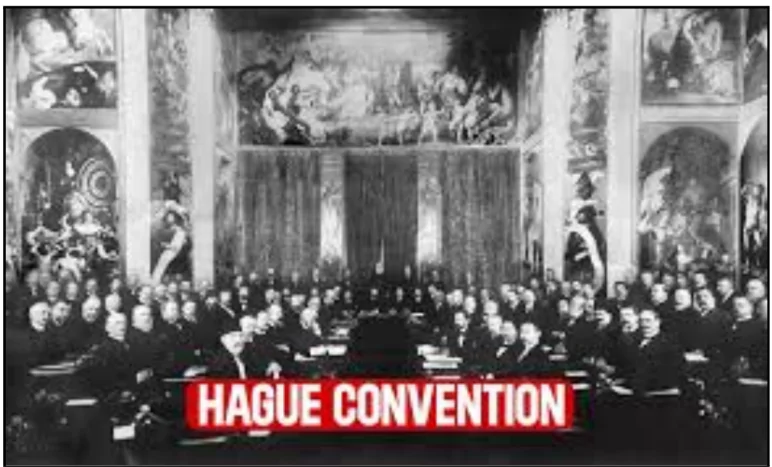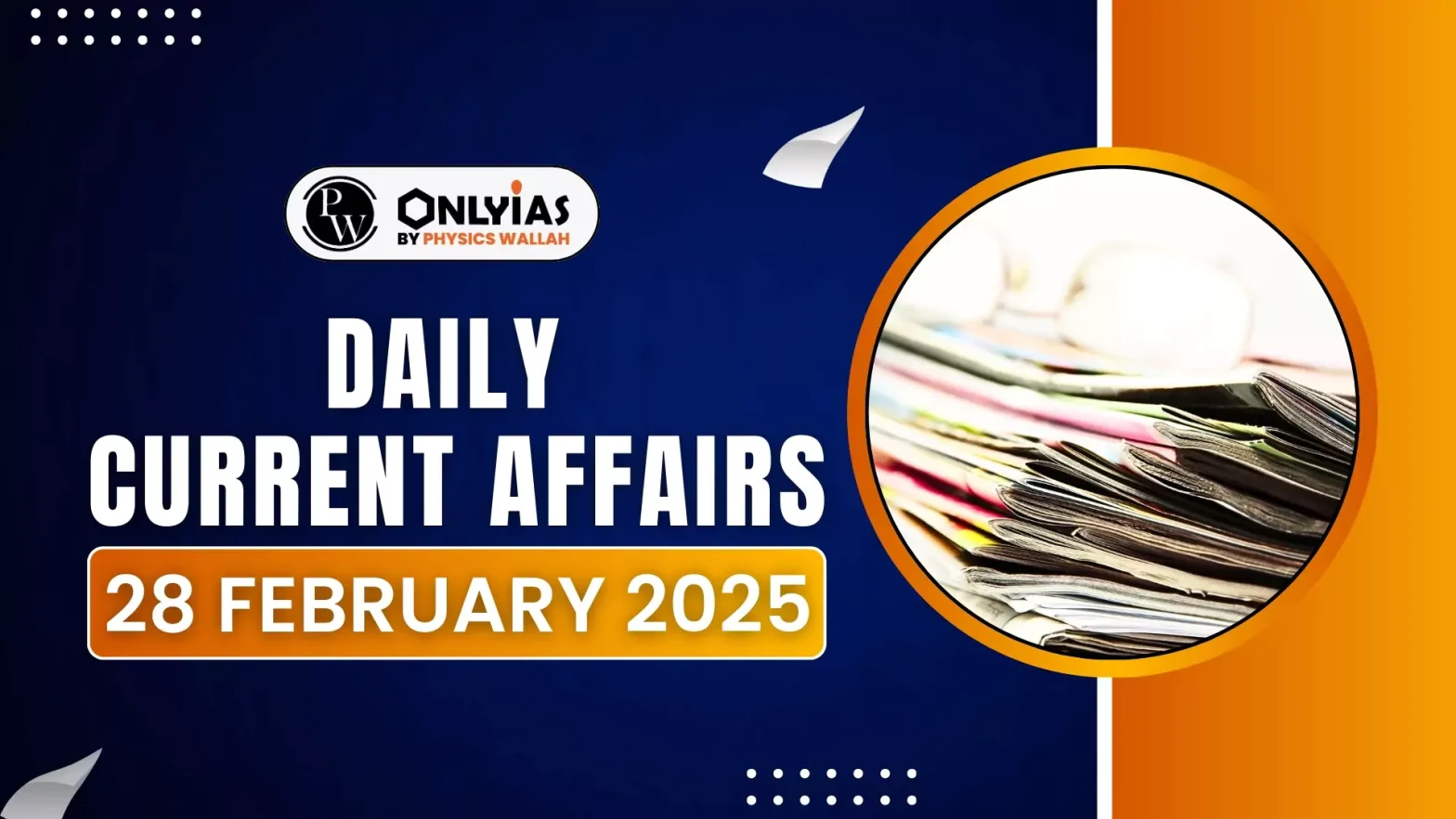The U.S. Securities and Exchange Commission (SEC) informed a New York court that it is seeking assistance from the Indian government under the Hague Service Convention to serve summons on Gautam Adani and Sagar Adani in a securities and wire fraud case.

- The Adanis have been charged under the Foreign Corrupt Practices Act (FCPA) for allegedly bribing Indian government officials.
- The Trump administration previously paused FCPA enforcement for 180 days, but the SEC’s latest filing indicates the investigation will continue.
About the Hague Service Convention
- Formal Name: The Hague Service Convention is officially called the “Convention on the Service Abroad of Judicial and Extrajudicial Documents in Civil or Commercial Matters, 1965.”
- Coverage Under the Convention:
-
- Applicable exclusively to civil and commercial matters, excluding criminal cases.
- Enforced when both the requesting and receiving countries are signatories to the Convention.
- Purpose of the Convention:
- It facilitates the service of judicial and extrajudicial documents across international borders.
- Ensures that defendants sued in foreign jurisdictions receive timely and actual notice of legal proceedings.
- Helps in proving that documents have been properly served.
- Adoption: Established in 1965 under Private International Law to streamline the cross-border service of legal documents.
- Membership: Eighty-four states, including India and the U.S., are parties to the Convention.
- Its procedures apply only when both the sending and receiving countries are signatories to the Convention.
- Central Authority for Service Requests: Each member state must designate a central authority to process and facilitate the service of documents.
- In India, the Department of Legal Affairs, Ministry of Law and Justice is the designated central authority for handling service requests.
Modes of Service Under the Convention
- Primary Mode of Service: The main method of serving legal documents is through the designated central authorities of the receiving country.
- Alternative Service Channels: Apart from the primary mode, the Convention allows other channels of service, including:
- Postal service
- Diplomatic and consular channels
- Direct communication between judicial officers in both states
- Direct contact between an interested party and judicial authorities in the receiving state
- Direct communication between government authorities
India’s Accession and Reservations
- India’s Ratification: India ratified the Convention in 2006 but with certain reservations against direct service methods.
Restrictions Imposed by India
- Opposition to Alternative Service Methods Under Article 10: India does not allow direct service of documents via postal channels, judicial officers, or diplomatic agents.
- Documents Must Be in English: Legal documents served in India must be in English or accompanied by an English translation.
- Service Must Be Indirect: Documents cannot be served directly on a defendant in India by private judicial officers.
- Valid service can only be executed through the Ministry of Law and Justice.
- Restrictions on Diplomatic and Consular Service: The service of judicial documents through diplomatic or consular channels is prohibited, except when the recipient is a national of the requesting country.
- For example, a U.S. court cannot serve documents in India through U.S. diplomatic or consular channels unless the recipient is a U.S. national residing in India.
Grounds for Rejecting Service Requests
- Under Article 13, India can reject a service request if it violates national security or sovereignty.
- The Ministry of Law and Justice can refuse service requests, but it must provide specific reasons for the refusal.
- India cannot reject a request solely on the grounds that:
-
- It claims exclusive jurisdiction over the subject matter under its domestic law (Article 13).
- Its internal law does not recognize a right of action (Article 29).
Default Judgment in Cross-Border Cases
- A default judgment is a court ruling issued when a party (usually the defendant) fails to respond or does not appear in court after being served legal documents.
- In cross-border disputes, if a foreign government delays or refuses to serve summons, courts may issue default judgments against the absent party.
Conditions for Issuing a Default Judgment
Under Article 15 of the Hague Convention, a default judgment can be issued only if the following conditions are met:
- The document must have been transmitted through one of the prescribed methods in the Convention.
- At least six months must have elapsed since the transmission, and the court must determine that this period is reasonable.
- No certificate of service has been received, despite all reasonable efforts to obtain it through the competent authorities of the recipient state.
India’s Position on Default Judgments
- India has expressly stated that its courts can issue a default judgment in cross-border disputes even if no certificate of service or delivery has been received, provided that all conditions under Article 15 are met.
Judicial Precedents regarding Hague Convention’s
- Debate Over Alternative Service Methods: Courts have differing opinions on whether India’s reservation under Article 10 prohibits service through social media and email.
Conflicting Judicial Interpretations
- U.S. District Court Ruling: The court ruled that service via Facebook and email was permissible in India, reasoning that these methods do not fall under Article 10 restrictions.
- England and Wales High Court Ruling (2019 – Punjab National Bank v. Boris Shipping Ltd.)
- The court ruled that service must strictly follow the procedure outlined by India under the Convention.
- It invalidated a lower court decision that had allowed summons through alternative methods.
- Parties Waiving the Convention’s Provisions: To avoid delays in service, parties often waive the Hague Convention’s provisions by agreeing to alternative methods of service in contracts.
- California Supreme Court Ruling (2020 – Rockefeller Technology Investments v. Changzhou SinoType Technology Co.): The court held that service is valid if both parties have contractually agreed to an alternative method, even if a signatory state has objected to Article 10.
![]() 28 Feb 2025
28 Feb 2025

